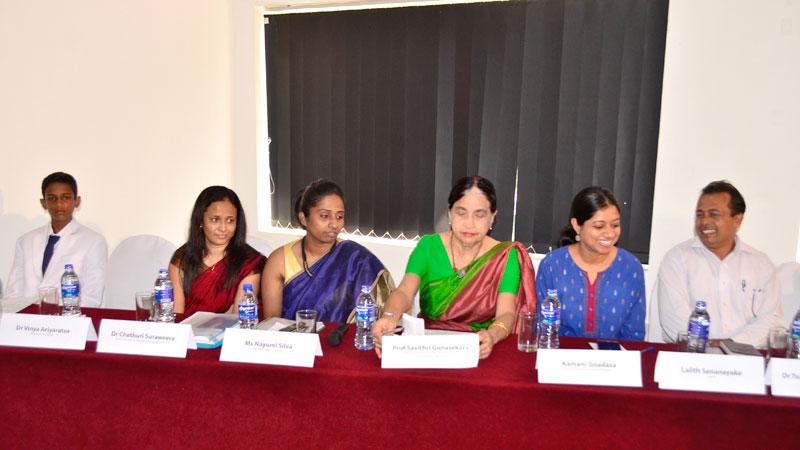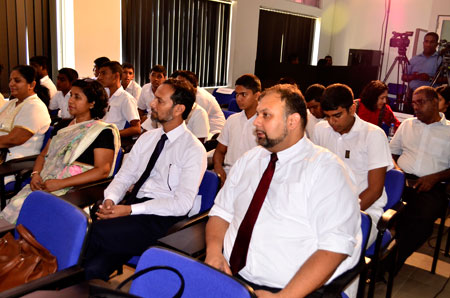
Corporal punishment is a subject of discussion in Sri Lanka for some time now. Since last September, End Corporal Punishment 2020 (ECP2020), a civil society collective had started campaigning to abolish corporal punishment in schools by the year 2020. Last week they reviewed the campaign’s progress for real change.
 Corporal Punishment can create long-term repercussions that result in physical and mental damage. Child maltreatment mainly causes stress, fear, insecurity, brain damage and also endows a violent neglected human to the world. Corporal Punishment is recorded as one of the ways which creates a ‘difficult childhood’ for the young generation.
Corporal Punishment can create long-term repercussions that result in physical and mental damage. Child maltreatment mainly causes stress, fear, insecurity, brain damage and also endows a violent neglected human to the world. Corporal Punishment is recorded as one of the ways which creates a ‘difficult childhood’ for the young generation.
In the past, Sri Lanka had promulgated laws and issued Education Ministry circulars to prohibit corporal punishment in schools. In 1991, Sri Lanka ratified the United Nations Convention on the Rights of the Child (UNCRC). But the problem still goes on unabated. Several victims have suffered grave physical harm and some have even been hospitalised due to corporal punishment. In February 2018 UNCRC issued a red alert to Sri Lanka for failing to ban corporal punishment.
ECP2020
The ECP 2020 Campaign is organised by the Stop Child Cruelty together with the Presidential Secretariat and the Sri Lanka Foundation Institute and is supported by leading personalities as patrons, as well as an alliance of Professionals.
They held a media conference on ‘Progress For Real Change’ recently at the Sri Lanka Foundation .
“The campaign highlights the dangers of physical harm meted out to school children and the severe psychological consequences they could face in adulthood. By now our message has attracted much attention and the support of many parties such as the University Grants Commission, LEADS, Sarvodaya, Hindu Women’s Society, Presidential Task Force on Child Protection and the Family Planning Association”, said Dr. Tush Wickramanayaka - Chairperson, Stop Child Cruelty while pointing out the progress of the campaign at the event.
Corporal Punishment directly attacks the cognitive development of a child. It has been found that the students who have undergone maltreatment show poor school attendance, low performance in studies, and mental health problems. They are also prone to suicide attempts, being revictimised and to become perpetrators of corporal punishment.
ECP2020 has taken several initiatives last year opposing maltreatment of children. On September 30, 2018, ECP 2020 presented a petition signed by over 3000 at the Walk for Real Change event. This start influenced and educated Sri Lankan community towards becoming a nation free from CP.
It is up to society to clarify the difference between the words discipline and punishment. To inculcate desirable behaviour in students and correct misbehaviour, disciplinary strategies which mould the child’s mentality positively must be used rather than punishment strategies.
Many educators and parents, continue punishing children in spite of the unhealthy consequences. Even though there have been Government circulars instructing staff not to resort to corporal punishment in schools, these seem to have been ignored.
Children are the future of our country, so facilitating a healthy school environment for children, free of fear and physical and mental harm is a social responsibility every adult should take up seriously.
Present at the EC2020 media workshop were Prof Hemantha Senanayake, Professor of Obstetrics and Gynaecology and Member UGC, Kamani Jinadasa, Executive Director, Shanthi Maargam, Prof Savithri Gunasekara, Emeritus Professor of Law and Former Vice Chancellor of University of Colombo, Nayomi Silva, Manager Advocacy LEADS, Dr. Chathuri Suraweera, Senior Lecturer in Psychiatry, University of Colombo, Dr. Vinya Ariyaratne, President, Sarvodaya, Sivanandani Duraiswamy, President, Hindu Women’s Society, Sonali Gunasekara, Director Advocacy, Family Planning Association and Lalith Senanayake, parent of a victim child and the Principal, staff and students of Visakha Vidyalaya and Royal College.
